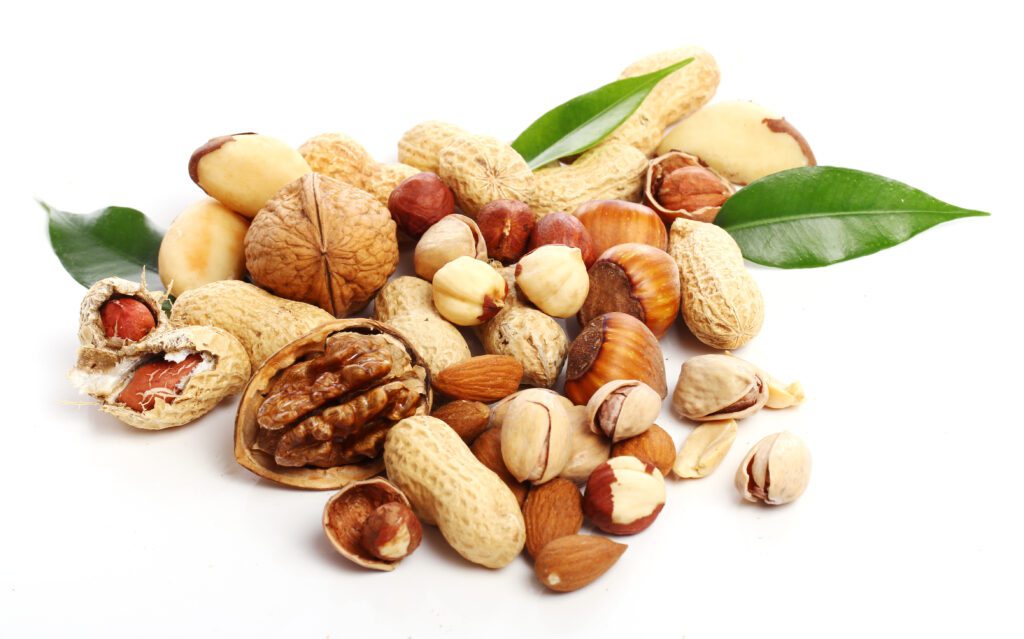Built to help women have a 360° approach to health through perimenopause to post-menopause.
welcome to MY BLOG
Helpful Food Choices at Menopause

September 16, 2024
Supporting Symptoms and Future-Proofing Your Health
As we navigate menopause, the food choices we make not only improve symptoms but can also help future-proof our health. A lot of women in my community reach out with concerns, especially in light of recent social media discussions, about whether not taking hormone replacement therapy (HRT) could increase their risk of long-term chronic diseases. I’m here to reassure those who are either managing menopause without HRT or those who are unable to take it, that it doesn’t necessarily compromise long-term health outcomes.
In fact, the evidence is overwhelmingly positive when it comes to diet and lifestyle in preventing chronic conditions such as heart disease, high blood pressure, osteoporosis, diabetes, and dementia. This is true for anyone, including those on HRT, particularly if you’re considering transitioning off it at some point.
Here are some key studies that illustrate how food can be a powerful play in maintaining health and preventing disease during menopause. There’s a lot more research out there, but these examples are a great starting point!
The Power of Nuts

A 2022 review of 89 studies showed that eating just 28g (1oz) of nuts daily can lead to some remarkable health benefits. This small habit was associated with a 21% reduction in cardiovascular disease, an 11% reduction in cancer-related deaths, and a 22% lower risk of death from all causes. Nuts are nutrient powerhouses, rich in essential fatty acids and antioxidants. For example, the flavonoids in walnuts (those papery bits attached to the nut) are fantastic brain antioxidants. Almonds and Brazil nuts are also packed with minerals like selenium, which further supports antioxidant activity.
The Anti-Inflammatory Mediterranean Diet

Balanced nutrition concept for clean eating flexitarian mediterranean diet Top view flat. Nutrition, clean eating food concept. Diet plan with vitamins and minerals. Salmon and Shrimp, Mix vegetables
A 2023 study demonstrated the benefits of following a Mediterranean-style diet, rich in olive oil, fish, vegetables, and whole grains, for just six months. This diet improved inflammatory markers—a crucial finding, especially as menopause is now considered an inflammatory event. Inflammation can contribute to common menopausal symptoms like aches and pains, but this diet can help combat that. It also has long-term benefits for cardiovascular and brain health, so it’s worth increasing your intake of oily fish like salmon, mackerel, and sardines, as well as nuts, seeds, and seed oils (like linseed oil).
DASH Diet for Blood Pressure
The DASH (Dietary Approaches to Stop Hypertension) diet has long been known for its ability to lower blood pressure, emphasising fruits, vegetables, and reducing salt and red meat intake. A recent study highlighted that consuming over four servings a week of foods like broccoli, carrots, tofu, soybeans, apples, and raisins was associated with a lower risk of hypertension. Brassicas like broccoli are particularly helpful at menopause as they support liver health and oestrogen detoxification. While I would personally skip the raisins (they’re essentially concentrated sugar), the tofu and soybeans are excellent sources of phytoestrogens, which mimic oestrogen in the body and help protect against bone loss.
Nutrient-Dense Diets for Brain Health
A 2023 study published in the British Medical Journal revealed that a nutrient-dense diet is one of the biggest factors in preventing Alzheimer’s disease, alongside exercise, brain activities, and community engagement. Olive oil, a cornerstone of the Mediterranean diet, plays a key role here too. A long-term study following 92,383 adults over 28 years found that consuming over 7g of olive oil per day was associated with a 28% lower risk of dementia-related death. The oleic acid and polyphenols in olive oil act as powerful antioxidants, protecting both the trees and our bodies from disease. So, don’t shy away from using high-quality extra virgin olive oil—go for the peppery varieties, as they’re higher in polyphenols.
Fruit, Vegetables, and Mental Health
Increased intake of fruits and vegetables has been shown to have a positive impact on women’s mental health. This is no surprise when you consider that these foods are rich in fibre, which supports gut health, and the gut is often referred to as our “second brain” since it’s where 90% of the body’s serotonin is produced. Fruits and vegetables are also loaded with vitamins, minerals, and antioxidants that protect and nourish the brain.
Avoid Ultra-Processed Foods
Another recent study found a link between higher consumption of ultra-processed foods and increased severity of menopausal symptoms. Reducing these foods can have an immediate positive impact on your symptoms and long-term health—a win-win!
In summary, whether you’re on HRT or not, adopting a diet rich in whole, unprocessed foods can have a profound impact on your health during menopause and beyond. If you’re interested in learning more about how food can serve as preventative medicine, click here to explore different ways we can work together. Let’s take control of our health, one meal at a time!
Thanks for reading!
Louise xx
Leave a Reply Cancel reply
I have a reputation as a compassionate and innovative therapist who produces rapid and lasting changes with my clients. Are you ready to become my next success story?
Website Designed W/ Love By Traveller By Trade
Copyright © 2021, Louise The Therapist
Privacy Policy